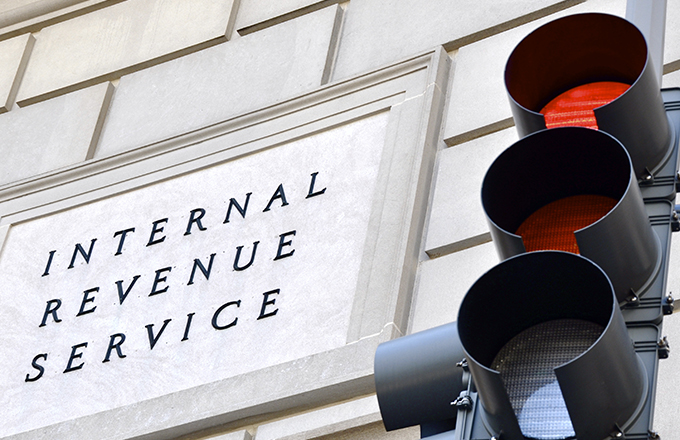US Filing Requirements for Offshore LLCs
Did you form an offshore LLC last year? Are you using an offshore LLC to hold foreign investments or to protect an international bank account? Here are your US filing requirements for that offshore LLC.
As the owner of an offshore LLC, you’ll need to file an entity election form, an annual tax return, a foreign bank account report, and possibly a statement of foreign assets. Here are the primary US filing requirements for offshore LLCs.
IRS Election to be Classified as a Disregarded Entity
Most offshore LLCs used as investment holding companies should be classified as disregarded entities for US tax purposes. This means that income and profits flow through to your personal tax return (Form 1040) as they are earned.
An offshore LLC owned by one person is a disregarded entity. An offshore LLC owned by a husband and wife, who live in a community property state, is also a disregarded entity. An offshore LLC owned by two people who are not married is a partnership.
Note that only offshore business profits can be held in an offshore corporation as retained earnings. Thus, only business profits can be deferred using a foreign structure.
Because there is no US tax benefit for passive investors in using an offshore corporation, they usually select an LLC with disregarded entity status. This is because the IRS form required from a disregarded entity is much easier (and cheaper) to complete than the one for an offshore corporation.
You must file a form with the US IRS to classify your offshore LLC as a disregarded entity, partnership or corporation. That is to say, you need to select this classification by telling the IRS your preference.
To select your classification, you should complete IRS Form 8832 within 75 days of forming your offshore LLC. I suggest you send in this form as soon as you receive your company documents from the registrar.
As you go through this form, you’ll see that there is a default classification for various entities. If you’re at all unsure, send in the form. It’s better to get the guaranteed result by filling in one extra form than wonder or make a mistake.
Also note that there are some structures that can’t elect to be treated as a partnership or as a disregarded entity. See page 7 of the instructions to Form 8832 for a list of those entities. In most cases, a corporation can’t elect to be treated as a disregarded entity.
Annual Tax Return for an Offshore LLC
Once your international LLC is categorized as a disregarded entity, you must file IRS Form 8858 each year. This form reports income, expenses and transactions involving the LLC, all of which should flow-through to your personal return.
Form 8858 is a simplified tax return that just asks for the basics on your foreign transactions. It’s attached to your personal return (Form 1040), so no need to send in a separate packet. This also means it’s due whenever your personal return is due (April 15 or October 15).
If you didn’t make the election to be considered a disregarded entity, then you might need to file a Foreign Partnership Return (IRS Form 8865) for a Foreign Corporate Tax Return (IRS Form 5471). Both of these take a lot more work to complete than Form 8858.
It’s very important that you file Form 8858 every year. The penalties for missing it are outrageous.
The penalty for failing to file IRS Form 8858 is $10,000 per year. If the IRS sends you a notice reminding you to file, the penalty becomes $10,000 + another $10,000 for every 90 days you refuse to file after being notified. The cumulative penalty can be $50,000 per year per entity. See page 2 of the instructions to Form 8858 for more details.
Foreign Bank Account Report for an Offshore LLC
If your offshore LLC opens a bank account, and you’re the signer or beneficial owner of that account, you must file a Foreign Bank Account Report (or FBAR) on FINCEN Form 114.
An FBAR is required for your offshore LLC if you held more than $10,000 in cash or securities in an offshore account. Even if you had that balance for only one day, you must file a foreign bank account report.
Also, this is the cumulative total of all your accounts… all the accounts you are either the signer or beneficial owner of. If you have $5,000 in a personal account and $6,000 in your offshore LLC, then you have $11,000 offshore and need to report.
Like Form 8858, the penalties for making a mistake on the FBAR are quite high. If you think you might need to file, then file. Submitting an extra form to cover your backside is always better than taking a risk of $10,000 to $50,000 a year.
Statement of Foreign Assets
If you have significant assets offshore, you likely need to complete Form 8938, Statement of Foreign Assets for your offshore LLC. Here are the filing requirements for Form 8938.
- If you’re married filing joint, living in the United States, and have more than $100,000 in foreign assets at the end of the year, or more than $150,000 on any day of the year, you must file Form 8938.
- If you’re married filing separately, living in the United States, and have more than $50,000 in foreign assets at the end of the year, or more than $75,000 on any day of the year, you must file Form 8938.
- If you’re single, living in the United States, and have more than $50,000 in foreign assets at the end of the year, or more than $75,000 on any day of the year, you must file Form 8938.
- If you’re married filing joint, not living in the United States, and have more than $400,000 in foreign assets at the end of the year, or more than $600,000 on any day of the year, you must file Form 8938.
- If you’re married filing separately, not living in the United States, and have more than $200,000 in foreign assets at the end of the year, or more than $300,000 on any day of the year, you must file Form 8938.
- If you’re single, not living in the United States, and have more than $200,000 in foreign assets at the end of the year, or more than $300,000 on any day of the year, you must file Form 8938.
These are the most basic filing requirements. You should review the instructions carefully to figure what constitutes a “reportable” asset and whether you need to file this form.
If you’re unsure, or right on the line, I suggest you send in the form because the penalties for failing to file can reach $50,000 per year (do you see a theme developing?). Better to be safe than sorry when it comes to offshore reporting.
I should also point out that there are a few investments that don’t need to be reported on the FBAR or the Statement of Foreign Assets. Primarily, gold and real estate held in your name outside of the US do not need to be reported.
However, if you hold those assets inside of an offshore LLC, the LLC must be reported. The only time gold and real estate are exempted are when they’re held in your name without a an offshore structure such as an LLC, corporation, trust or foundation.
And, when I say they don’t need to be reported, I mean that your ownership of them does not need to be reported. When you sell, the gain is taxable and is to be reported on your personal tax return. Also, if the foreign real estate is a rental, you must report income and expenses to the United States just as you do domestic property.
I hope you’ve found this article on the offshore filing requirements for offshore LLCs to be helpful. For more information, or to be connected to an international tax expert who can prepare your returns, please contact us at info@premieroffshore.com or call us at (619) 483-1708.












Leave a Reply
Want to join the discussion?Feel free to contribute!